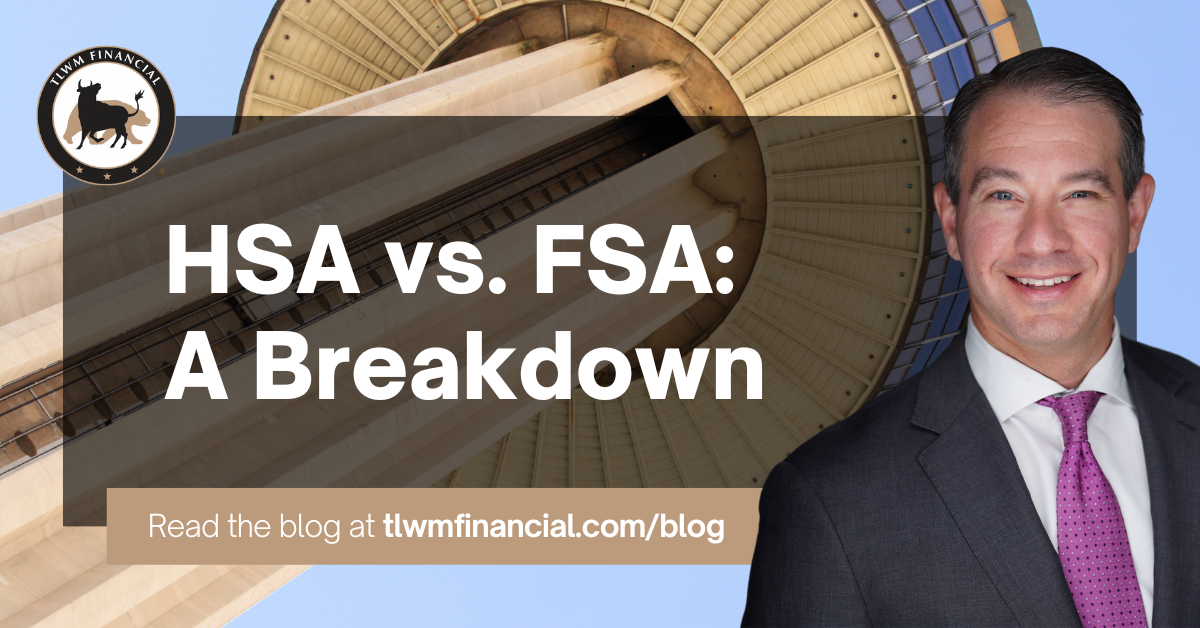HSA vs FSA: A Breakdown
Submitted by TLWM Financial on January 30th, 2024
Depending on your current health insurance plan, you may have access to either a flexible spending account (FSA) or a health savings account (HSA).
Both are tax-advantaged accounts that can help individuals and families save money for qualified medical expenses. However, there are several key differences between the two—here’s a closer look at what you need to know.
Eligibility
One of the biggest areas where an HSA and an FSA differ is in eligibility. To qualify for an HSA, you must be enrolled in a low-cost, high-deductible health plan and not be eligible for Medicare or an independent on someone else’s tax return. On the other hand, you can only get an FSA through your employer, if they offer it as part of their benefits package. The plus side is that all employees are eligible to participate in an FSA, regardless of the type of health insurance plan they have.
Ownership
An HSA is individually owned, meaning it belongs entirely to the account holder. Even if you change jobs or switch health insurance plans, you keep the account and continue utilizing the funds for your health care needs. Conversely, because FSA accounts are owned by the employer, you usually can’t take yours with you if you leave your company. This can potentially result in the loss of accumulated funds from that year.
Rollover rules
HSAs have an advantage over FSAs when it comes to the rollover rules. Your full HSA funds can be carried over from year to year, meaning that any remaining funds in your HSA at the end of the year remain in your account to continue growing tax-free and be used for future medical expenses. FSAs, however, are notorious for their “use it or lose it” policy, which results in forfeiting any unspent funds at the end of the plan year. While some employers now offer a limited rollover or a grace period of up to two and a half months for using up FSA funds, the HSA’s rollover flexibility still has a distinct advantage.
Contribution limits
Generally, HSAs have higher contribution limits compared to FSAs, though both are reviewed annually by the IRS and are subject to change. In 2023, for instance, the HSA contribution limits increased to $3,850 for individuals and $7,750 for families. Comparatively, the contribution limit for FSAs jumped to $3,050 with a maximum rollover of $610 annually.
Investment options
Another area where HSAs provide more versatility is in their investment options. Many HSA providers, such as Fidelity and HealthEquity, allow you to invest your HSA funds into mutual funds or other investment vehicles. This potential for growth can significantly enhance your savings over time, creating a valuable asset for future health care needs (at least until you turn sixty-five, at which point you can use these funds for anything). In contrast, FSAs do not typically offer investment options since these funds are held in non-interest-bearing accounts, limiting their potential for growth.
It’s important to note that both HSAs and FSAs have specific rules and regulations regarding eligible expenses, so familiarize yourself with those guidelines to ensure you use the funds properly. Consider consulting with a tax advisor or benefits specialist for personalized advice on which account may be the best fit for your specific situation.
This article was prepared by ReminderMedia.
LPL Tracking #1-05377913

